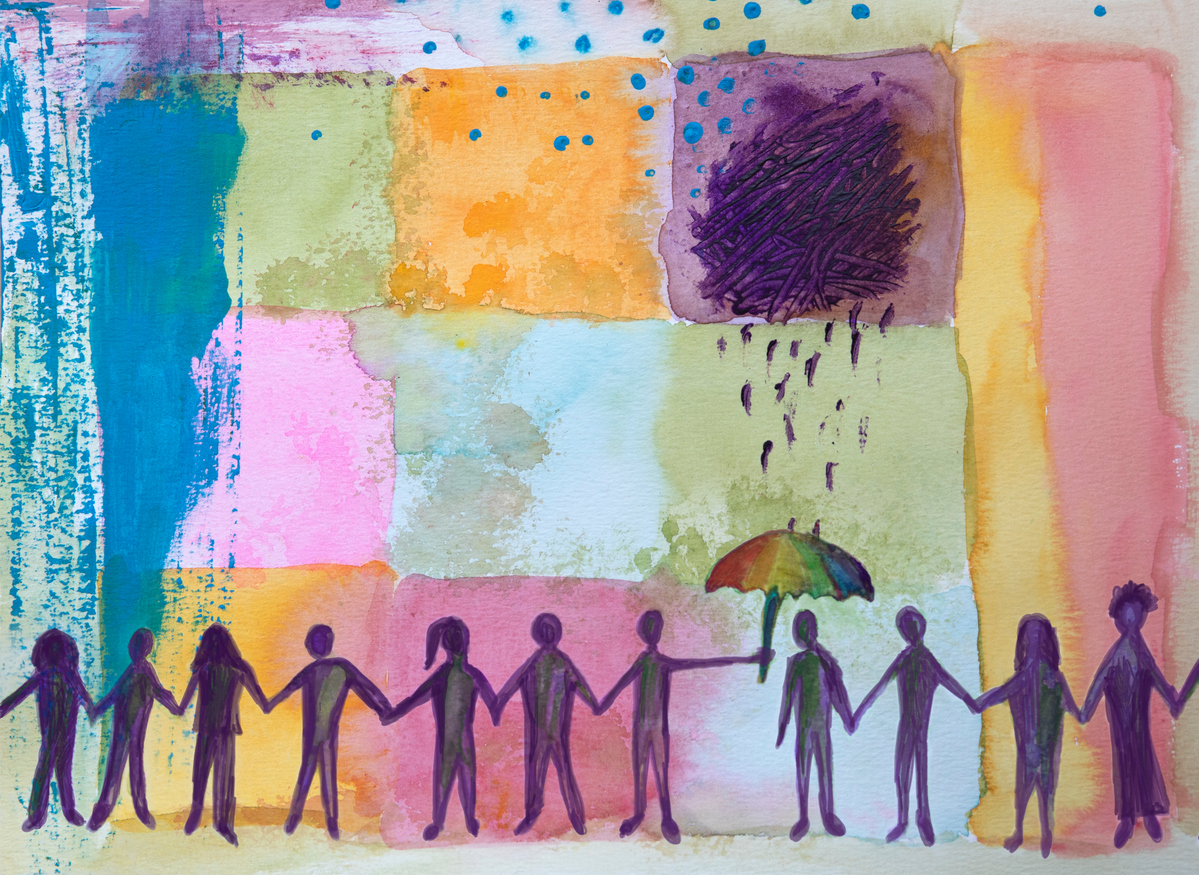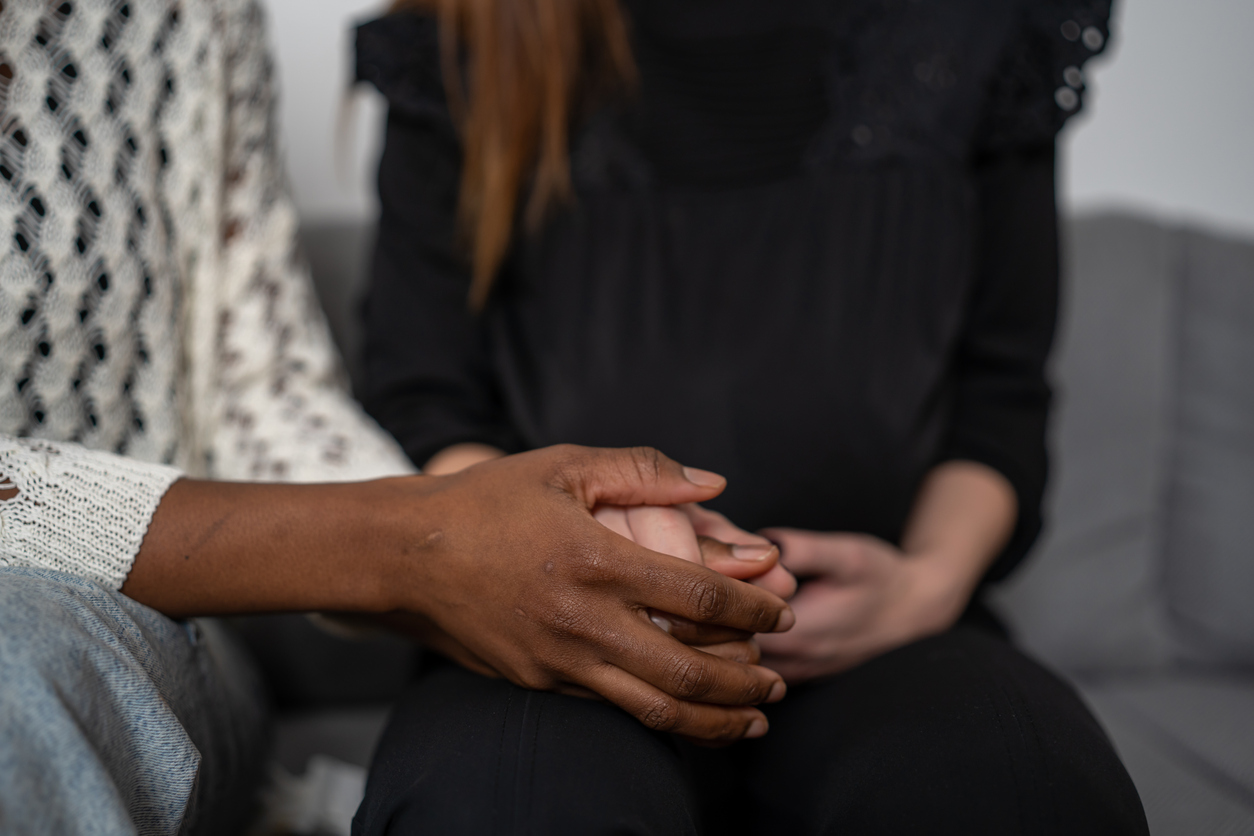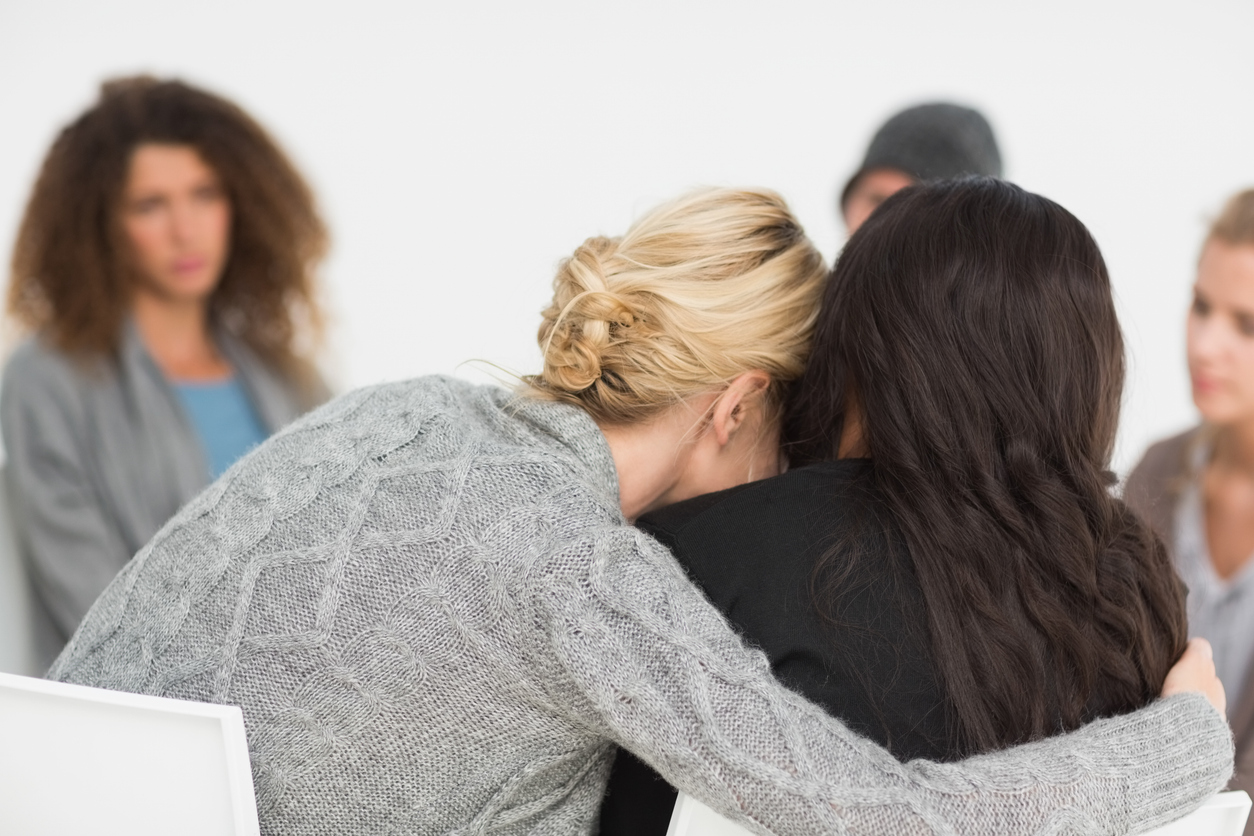In 2022, Gina’s aunt and grandmother passed away within months of each other, two people who had been at the center of her life. Then she lost her job. At age 33, her world felt like it was crumbling beneath her.
That same year, Pat, age 79, lost her husband. “We had been married 55 and a half years. There was never one day during that time that I said, ‘Why did I marry this man?’ I knew every day why I married him,” says Pat.
The two women met at a HopeHealth grief support group in Wakefield, RI, along with roughly a dozen other people. In that setting, facilitated by grief counselor Marsha Ireland, they’d expected to find a safe place to share their heartbreak. They did.
To their surprise, they also found a reason to share joy.
Because in the midst of so much loss, Gina was pregnant with her first child.
And in Pat’s words, “Babies are my thing.”
The importance of grief support groups: “It’s that same ache”
Research shows that grief support groups can be essential for healing after the death of a loved one. But when Gina’s therapist suggested she take advantage of HopeHealth’s, Gina hesitated.
“I was a little anxious. It’s hard asking for help. I’d never really talked about my grief. I ignored it, I ignored it, I pushed it aside,” says Gina. “But I realized I needed to do something for myself. I had to come out of my comfort zone to deal with my grief.”
Of HopeHealth’s many virtual and in-person options, she chose in-person, meeting monthly. For the first few meetings, she mostly just listened. Even that was a revelation.
“People in the group were so nurturing, and truly listened to each other,” Gina says. “It was a great feeling, even if I just sat there in silence.”
Up until that point, alone in her grief, she’d suspected that her innermost thoughts and feelings weren’t normal. “I would think, I must be crazy,” she says. But in the group, she heard versions of her own experiences from all around the room.
“One person in the group had lost his husband. I know that’s very different — his husband; my aunt and grandmother,” says Gina. “But when he talked about it, I could tell it’s the same ache.”
It made her feel less lonely, and less anxious.
The other thing about the group? It was helping her get excited about the baby growing inside her.
That was especially thanks to Pat.

> Related: Where to put your love when you’ve lost someone special
“She picked me up”
When Pat learned that Gina was pregnant, she was — to put it lightly — over the moon.
For more than a decade, Pat had taught childbirth classes to expecting parents. She’d attended dozens of births, volunteering to be by the mother’s side simply as moral support. One couple made her their son’s godmother.
“Nothing gives me more joy than a baby,” Pat says. “I’ve seen a lot of babies being born. Everyone is special in another way. That became my thing. Other people had hobbies, that was mine.”
For Gina, who was nervous about the labor and delivery, and conflicted about how to feel excited amid so much sadness, Pat’s enthusiasm was a buoy.
“I’ve honestly never met somebody who was, at the time, a stranger, who was so happy for me in my life,” says Gina. “She reminded me of my grandmother, very nurturing and kind and humble.”
Gina would show up to a meeting, often late, many months pregnant, exhausted after her work shift. Pat would have a seat reserved next to her at the big group table. When Gina shared something vulnerable, Pat would reach for her hand. (Pat is a hand-holder. And a hugger.)
“Every time Pat saw me, she’d call me Mama,” says Gina. “She made me feel that I was important. That it was OK that I was happy. I remember telling Pat, I feel like I’m still grieving and just don’t deserve to be happy. Pat was so sweet and positive, she picked me up out of it.”

> Related: How to support someone who is grieving
“How did I get so lucky?”
Baby Gemma was born in the fall. From the hospital and then from home, Gina texted Pat updates with photos — so many photos, starting with the first time she held Gemma in the delivery room.
“I could cry, it makes me feel so good,” says Pat. “Every couple of days Gina sends me more. It gives me something to look forward to. If I’m having a really bad day, I go back to the very first picture that she sent me and then go through every picture.”
When Gemma was a few months old, Gina brought her by to meet the HopeHealth grief support group — including, of course, Pat. As she held Gemma, Pat found herself reflecting: Months earlier, she’d arrived at the group filled with heartache. Despite and because of it, she’d made a dear friend. Now she would get to watch this sweet baby grow up.
“When I lost my husband, I knew then that I couldn’t get through this alone. There was no way,” Pat says. “How did I get so lucky to get into this particular group, and sit next to Gina?”
“I genuinely believe that this baby was sent from above to heal my heart,” says Gina. “And Pat’s too.”
Are you coping with grief and loss? Find a virtual grief support group or reach out at (888) 528-9077 or CenterforHopeandHealing@HopeHealthCo.org.

